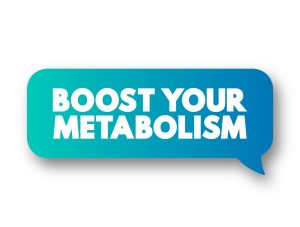Allergies are versatile. They can show up just about anywhere in your body and create an incredible variety of symptoms. They can affect your nose, eyes, throat, lungs, stomach, skin and nervous system. They can give you a stomachache, a rash and even bring on fatigue and headache.
Allergy symptoms occur when your body’s immune system overreacts to a substance in your environment. But it is not the substance that causes the allergic reactions; it is the body’s reaction to that substance that prompts the reactions. The immune system overreacts and releases a chemical that the body uses to fight microbial invaders. But in allergies, the invaders are not viruses or bacteria. They are harmless substances: pollens, dust, mold spores and other substances including food.
When the immune system uses its weapons to fight off infection, the results are usually good. But if the immune system gets confused and mistakes pollen for bacteria, it can unleash those same weapons unnecessarily, wreaking havoc in the body.
People with allergies have immune systems that can react to just about anything that comes along. A tiny particle of the right substance puts your panicky immune system on the defensive. Your body strikes back by releasing a rush of a chemical that causes the familiar swelling and running in your nose, eyes and sinuses.
These overly sensitive immune cells (called mast cells) release a substance called histamine. Histamine causes small blood vessels to widen allowing fluid to pass from the bloodstream into the surrounding tissues, causing nasal conditions, runny eyes and nose and sometimes hives.
Histamine can make the smooth muscles in the walls of the lungs, blood vessels, stomach, intestines and bladder contract. This contraction can bring on a wide range of symptoms. Histamine in the lungs causes wheezing. Histamine also indirectly stimulates the production of thick, sticky mucus.
Hay fever is triggered by pollens. There are allergies to cat hairs, bee stings or certain foods or drugs.
They are all the result of the same thing; the immune system overreacts to the substance in your environment
What to do for allergies
In spring nearly 8% of Americans experience seasonal allergies.
Most conventional treatments are aimed at cooling off this inflammation. Standard treatment for allergies involves taking certain medications. While these drugs can be effective, they all have side effects, such as drowsiness, raised blood pressure, interference with sleep, and some may even suppress your immune system predisposing you to infections.
Natural help for allergies
Fortunately, there is natural help for allergies including eating certain foods, vitamins, herbs and immune-balancing foods. You can also reduce the number of allergens in your environment.
Reduce the allergen triggers in your environment
The Mayo Clinic offers the following suggestions for reducing exposure to allergy triggers:
a. Stay indoors on dry, windy days. The best time to go outside is after a good rain, which helps clear pollen from the air.
b. Delegate lawn mowing, weed pulling and other gardening chores that stir up allergens.
c. Remove clothes you’ve worn outside, and shower to rinse pollen from your skin and hair.
d. Don’t hang laundry outside — pollen can stick to sheets and towels.
e. Wear a pollen mask if you do outside chores, or work outside.
f. Check your local TV or radio station, your local newspaper, or the Internet for pollen forecasts and current pollen levels.
g. Close doors and windows at night or any other time when pollen counts are high.
h. Avoid outdoor activity in the early morning when pollen counts are highest.
i. Keep indoor air clean using a portable high-efficiency particulate air (HEPA) filter in your bedroom.
j. Clean floors often with a vacuum cleaner that has a HEPA filter.
k. Keep indoor air dry with a dehumidifier.
l. Use the air conditioning in your house and car.
2) Eat more colorful fruits and vegetables
Keep your immune system healthy by eating lots of colorful fruits and vegetables. Blueberries, strawberries, tomatoes, sweet potatoes and bell peppers are good choices. These foods are rich in flavonoids, which act like antihistamines. They also contain carotenes, which have anti-inflammatory activity. Eating garlic and onions can help retard the inflammatory reactions of allergies.
3) Take a supplement to support your immune system
Thankfully, there is much scientific evidence which points to beta-glucan providing natural relief for allergy symptoms.
Beta-glucan is a form of soluble fiber derived from the cell walls of baker’s yeast that can support and modulate the immune system.
Studies published on PubMed.gov have shown that beta-glucan supplementation for 4 weeks significantly improved allergy symptoms.
Beta-glucan may reduce runny nose, sneezing, congestion and itchy, watery eyes caused by pollen allergies. It also offered improved overall physical health and emotional wellbeing as compared to a placebo.
The health benefits of beta-glucans are well documented and show they support the immune system, the body’s first line of defense against illness, disease and allergies.
Immune Defense by Qgenics provides 1,953 mg of natural beta-glucan per serving. That’s up to 2 times more beta-glucan than most other brands giving better results and better value for your money.
Some people with autoimmune are very wary about “immune boosting supplements”. However…
Immune Defense could be called an immune system modulator. Immune Defense is made up of 70% pure 1,3 &1,6 beta-glucans derived from the cell wall of baker’s yeast. 70% purity is the maximum that can be reasonably used to avoid over stimulating the immune system, which results in health problems.
Click here for Immune Defense
 This natural nutritional supplement that works at the cellular level to improve metabolism and gut health, thereby reducing insulin resistance and inflammation.
This natural nutritional supplement that works at the cellular level to improve metabolism and gut health, thereby reducing insulin resistance and inflammation.
 en Cause Neuropathy?
en Cause Neuropathy? Have you ever wondered why you may be experiencing symptoms like sleep apnea, abdominal pain, or hypertension?
Have you ever wondered why you may be experiencing symptoms like sleep apnea, abdominal pain, or hypertension?